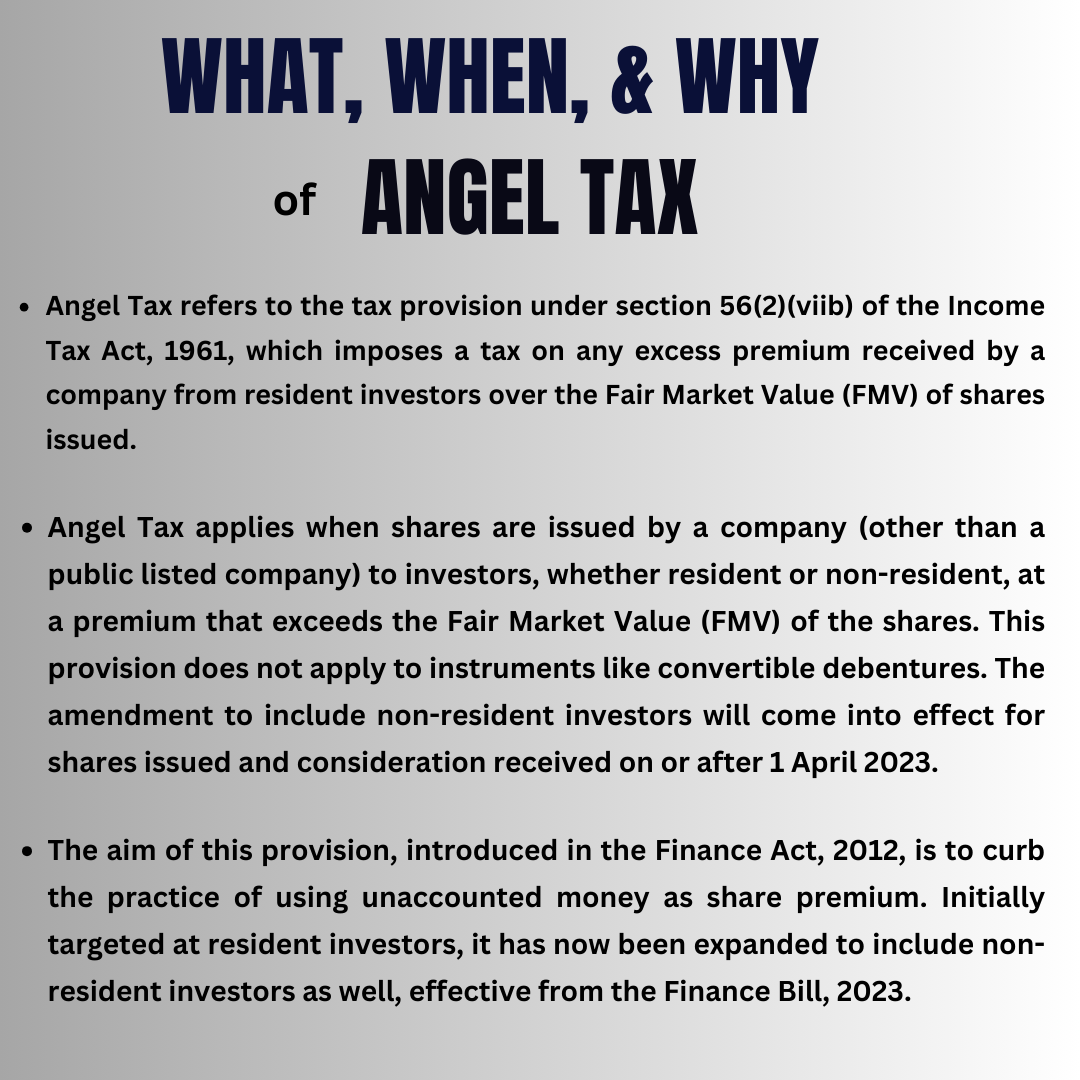In 2023, investments in Indian start-ups witnessed a decline of nearly 70%, with seed stage funding plummeting by 60% as of December 2023, according to a Tracxn report.
While of course various factors and circumstances contributed to this downturn, the startup ecosystem has seldom been in favour of Angel Tax. ETBFSI analyses the impact Angel Tax has had on the investment sentiment after its introduction in 2012 and if at all repealed, how will India’s investment climate change for startups.
Angel Tax subtly indirects the investments
Investment decisions in jurisdictions complying with the Angel Tax are complex.
“The tax can lead to significant cash outflows, create distractions through tax litigations, and pose challenges for future equity raises for the startups. These factors indirectly influence our investment considerations,” Aditya Sarda, Senior Vice President – Investments, BlackSoil Capital told ETBFSI.
While the Angel Tax does not directly impact debt investors’ decisions, they remain cognizant of its effects on their investee companies and potential investments.
Distorting free market valuations
Expressing concerns about the impact of regulatory changes, Mitul Mehta, CFO, Blume Ventures, said, “This piece of regulation curtails free market pricing of securities between willing parties. Furthermore, outside of funds like ours, there are other categories of investors like FDI and angels who are a reasonably large category of investors in the early-stage market. It impacts their investments in the company and also value creation opportunities for a section of our own country.”
Since non-residents were excluded from the Angel Tax exemption, foreign investors now face constraints. They must adhere strictly to third-party valuation prices when investing, as deviating could lead to tax implications for the companies they invest in.
Valuations at early/growth stages do tend to have subjectivity and market impact. Investors may choose to invest at a price higher than what is stated in a third-party valuation report based on various factors. In such scenarios, it is very common for foreign investors to expect the ability to trigger an anti-dilution if needed.Mitul Mehta, CFO, Blume Ventures
This rigidity has led to a suppression of company valuations, limiting the potential value that companies can achieve.Challenges to fundraising and ease of doing business
“There are assessments that take time and things get prolonged unnecessarily. Investments in the unlisted segment tend to have combinations of primary and secondary investments. These are illiquid assets and hence secondary transactions tend to happen at a discount to the primary price. Angel Tax laws as they stand today don’t factor in these and make round constructs and hence fundraising difficult to execute,” noted Mitul Mehta of Blume Ventures.
The exclusion of key investment hubs like Singapore and Mauritius has resulted in an overall unfavorable impact on the startup ecosystem, potentially hindering fundraising efforts and growth trajectories.Aditya Sarda, Sr Vice President – Investments, BlackSoil Capital
It contributes to foreign investors’ concerns about India’s taxation and policy environment, potentially influencing capital allocation decisions across geographies, he added.

What if Angel Tax is repealed?
“Repeal of the Angel Tax will allow a lot more flexibility to companies wanting to fundraise. It would ensure there are no legal repercussions on companies or investors and allow better flow of investments into companies and value creation,” said Mitul Mehta of Blume Ventures.
“Beyond its immediate effects, such a move would convey a message of tax law stability to the broader investor community. This policy stability, combined with India’s favorable macroeconomic conditions, could serve as a catalyst for increased foreign direct investment into the country,” stated Sarda.
The secondary transactions leading to liquidity creation and tax for the government would get an impetus. Above all, there would be significant ease in closing funding rounds and assessments.added Mehta.
This move would demonstrate India’s commitment to fostering its startup ecosystem and encourage foreign direct investment, sending a strong positive signal to the investment community, noted Aditya Sarda.
Regardless of the sector, startups aspire to build sustainable businesses and eventually aim for an Initial Public Offering (IPO). Repealing the Angel Tax would facilitate this journey by smoothing out obstacles, emphasised Mitul Mehta.











